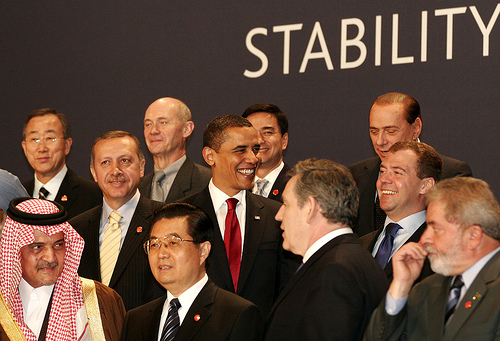These developments in the global economy and financial markets have two main implications.
First, they have shaken faith in the old development paradigm. Re-thinking the development paradigm is now an urgent task. At a national, regional and global level there is need for a new consensus on where market failure, state failure, and the failures of international integration have got the world into its present mess.
There are in fact failures of all types responsible for the current situation and these is need for balance in laying the blame on the market, the state and international architecture. A new development paradigm must resolve not only traditional issues between the government, the market and individuals and the interaction between nominal economy and real economy. There must also be an overhaul of arrangements between national economies and polities, and regional and global institutions, to make them cover the gaps in national and international governance and to help existing arrangements work better.
Second, however elaborate the new development paradigm may eventually be, it cannot retreat from deepening economic integration at global and regional levels. What’s required goes well beyond traditional trade and investment liberalization. It involves reconsideration of how institutions at a national level, and the way in which they interact with national institutions through trade and capital markets and the flow of people and ideas across regions and across the globe. It needs to be made to function effectively without the risk of the system failure that we are currently experiencing. Comprehensive cooperation is essential to robust trade and investment openness.
The G20 has taken a step forward by incorporating the representatives of developed economies as well as of key developing economies in framing the beginnings of a new paradigm for development. It is moving to address the risk of global macroeconomic imbalance through the reform of global and regional institutions. There is a role for these new institutions and reform of the IMF and other global institutions. But they will need to be rooted in broader and more inclusive arrangements, and connected to existing structures like regional and global institutions that need to be engaged. The United Nations also needs to consolidate and enlarge its role.
These are long term tasks that won’t be solved in one or two ad hoc meetings, but are ongoing challenges that can only be met if a whole new infrastructure and set of capacities are developed to deal with the task.


An excellent contribution to the discussion about the evolution of the world econimic order.
Congratulations,
Andrew Elek
Again, are we over reacting to the current crisis? Are the real causes of the current crisis, dot.com burst, 9/11 the failure of so many things? Are we witch hunting? To just focus on the current crisis, What are/were the real causes? If we can’t get that right, any short term knee-jerk reactions are doomed to fail, or at least are unlikely to have meaningful longer term effects.